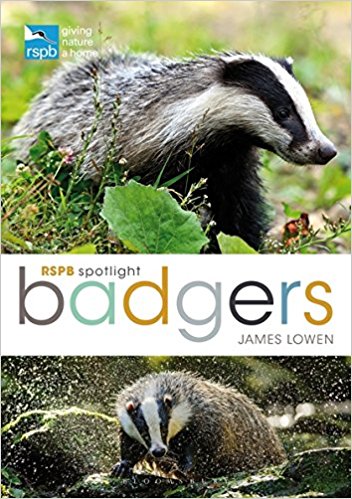Crop Damage
| RSPB Spotlight on Badgers book |
 |
James
Lowen explores the lives of badgers and their communal
living, feeding habits and threats to their conservation. Click
here to buy:
Paperback edition
Kindle edition
|
Crop damage is usually confined to certain periods each year,
and many growers find
it easier to tolerate the nuisance than try to exclude the badgers
from their planting areas. Minimising damage is difficult, as badgers are both
powerful and determined creatures.
With the Control of Pesticides
Regulations (1986) it is illegal to use unapproved chemicals (such
as Renardine or RenCoco), not
specified for a particular use, so care must be taken in choosing
a product.
Old-fashioned methods like "stinking-out" (with diesel oil,
creosote, etc) are illegal, as those substances damage the sett and may
cause permanent harm to the badgers (a protected species).Recent court cases have shown the willingness of the
courts to send people to jail who use illegal deterrents (such as diesel
oil or creosote or Jeyes Fluid). See the news story from the 11th May 2003
for more details. Given the ban on Renardine, it will remain to be seen
whether people will be prosecuted for using Renardine illegally after the
24th March 2005.
Some people (for example, the Cornwall Wildlife Trust - http://www.cornwallwildlifetrust.org.uk/nature/mammals/badger.htm)
believe that using bird or animals repellants which contain aluminium
ammonium sulphate may be effective against incoming wildlife. In our view they
are likely to be less than 100% effective,
especially as they are often designed to be taste-repellants to
deter animals or birds from eating crops which have been planted for later
consumption by humans. There is little information available to
indicate how effective these are against badgers. Importantly,
as they have not been specifically licensed to deter badgers, such
use against badgers may be illegal anyway.
Bulbs liable to attack
can be dipped in the powder, and the powder can be mixed with water and
sprayed onto lawns during periods when they are liable to be dug. One
manufacturer of an aluminium ammonium sulphate deterrent also suggests
that raking the powder into the soil around a carrot or potato crop may
help reduce losses to wildlife and pets.
If chemical deterrents are used, any crops should be very
thoroughly washed before being eaten, and if the compound is applied
directly to crops there is a six-week withholding period for fruit and
four weeks for other crops.
In terms of commercial crop damage, this can occur
because badgers have acquired a taste for the crop concerned, or simply
because they play or forage in the crop, which causes the damage. Maize is
sometimes damaged, as badgers like to eat it.
Sudden planting of oil-seed rape can transfer
badger-related damage to adjacent fields. This is because the roots of the
oil-seed rape crop give off a gas which acts as an earth-worm deterrent.
As the badgers will have fewer earthworms from the original source, they
may concentrate their efforts on nearby fields instead.
The best solution for commercial crop damage is to use
appropriate Fencing to keep the badgers out of
the crops that need to be protected.

| Legal Notice regarding the banning of
Renardine: |
| Renardine was the only legally permitted chemical deterrent which was
effective against badgers.
As from the 24th March 2005, Renardine has been banned.
Importantly, ALL the approvals for Renardine have now expired. This
means that: |
|
* Renardine can no longer be advertised for sale. |
|
* Renardine can not be bought from any shop, wholesaler, mail order,
agricultural supplies merchants, internet or by private sale. |
|
* Renardine may no longer be supplied, sold, given away or swapped. |
|
* Renardine may no longer by used. |
|
* Renardine may no longer be stored (so any stocks you have must be
disposed of). |
|
RenCoco
( Renardine-impregnated cocoa shells) has also been banned. |
|
For more information see the
PSD's web site at http://www.pesticides.gov.uk/approvals.asp?id=1567 |
| About Wildlife Consultants |
| Laws protect badgers from being
harmed and their homes damaged. Whilst permits can be issued to allow such badgers to be moved, you
need to have professional
research done to see where the badgers are and what they need. In
commercial property development, finance and logistics can be very
important. Also, if an insurance company is paying for
re-building work, they may want to be certain
that the commercial risks are understood too. Wildlife Consultants are
usually highly experienced at dealing with such legal and commercial
issues and should be able to help mitigate the risks. Wildlife consultants help deal with protected species,
making sure that developers understand the law AND the needs of any
animals. Local Badger Groups
may also conduct badger surveys, and we run our own email-based
Ask An Expert service. |
|
